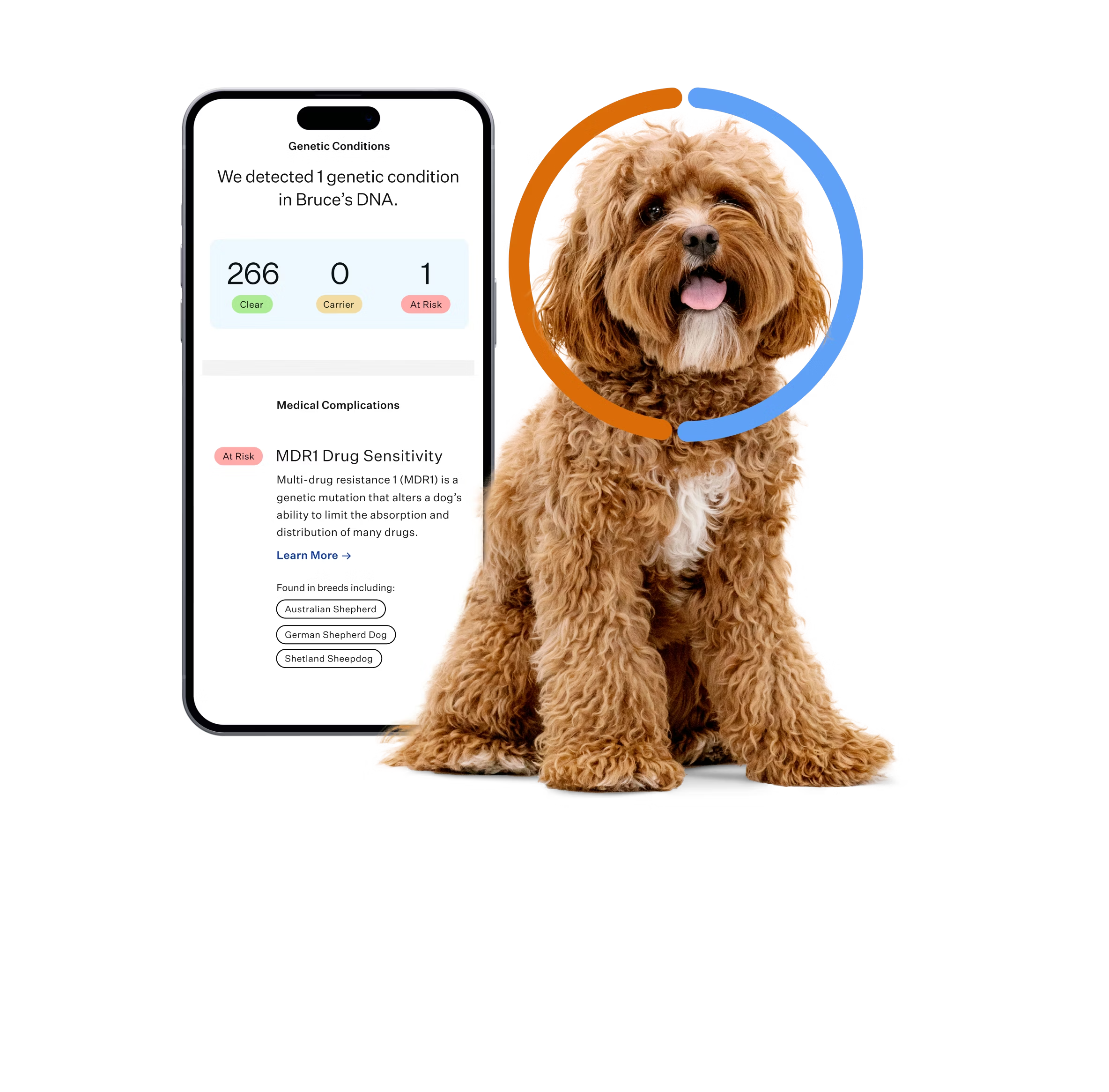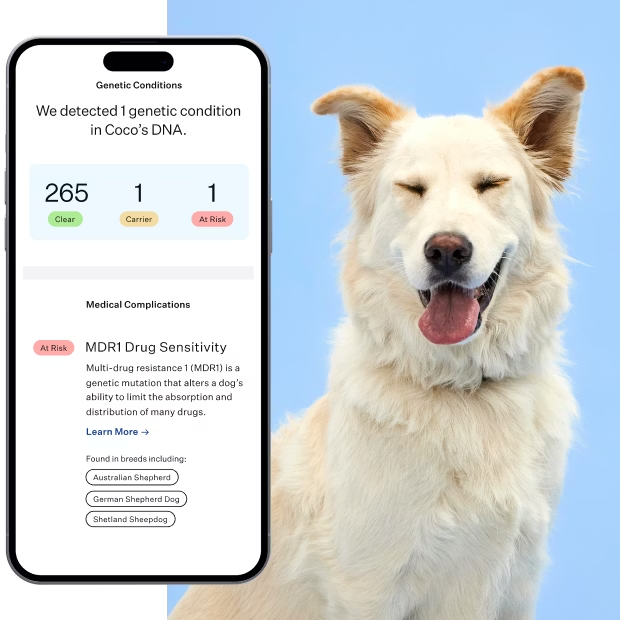Why genetic testing is important
Genetic testing allows you to know your pet's health on a deeper level. Because many diseases have genetic markers, analyzing your pet's DNA can indicate if they have the potential to develop a condition or pass it on to future generations. Plus, your pet's DNA sample helps fuel Wisdom Panel's scientific research. That means your pet could play a role in advancing diagnosis, treatment, and prevention of diseases.


Understanding your pet’s genetic health
Did you know some dogs and cats have a genetic mutation that makes them sensitive to certain commonly used medications? That’s just one example of a genetic health concern that can be identified through DNA testing. And when you know if your pet is at a higher risk of a health condition, you and your veterinarian can take a proactive approach to their care. That means recommendations on nutrition, treatments, and lifestyle can all be personalised to your unique pet.
Our science
Wisdom Panel used a proprietary laboratory chip to genotype your pet’s DNA and analyze the sample for the hundreds of genetic markers used in our health tests. These results are further analyzed using bioinformatics to develop unique risk profiles for your pet — giving you the information you need to make decisions for their life-long care.


Understanding the conditions
Screening for 265+ health conditions enables you and your veterinarian to stay on top of your dog’s care throughout their life. Common health conditions that we screen for include Chondrodystrophy (CDDY) and Intervertebral Disc Disease (IVDD) Risk (which has been found in 1 in 5 dogs in the Wisdom Panel database, and is common in short legged dogs such as Dachshunds and French Bulldogs) and Multidrug Resistance Mutation 1 (MDR1) (which is most common in herding breeds such as Collies, Sheepdogs, and Shepherd dogs).
Additional resources
Head to our blog for in-depth information on dog and cat genetic health, or click the links below to get started.











